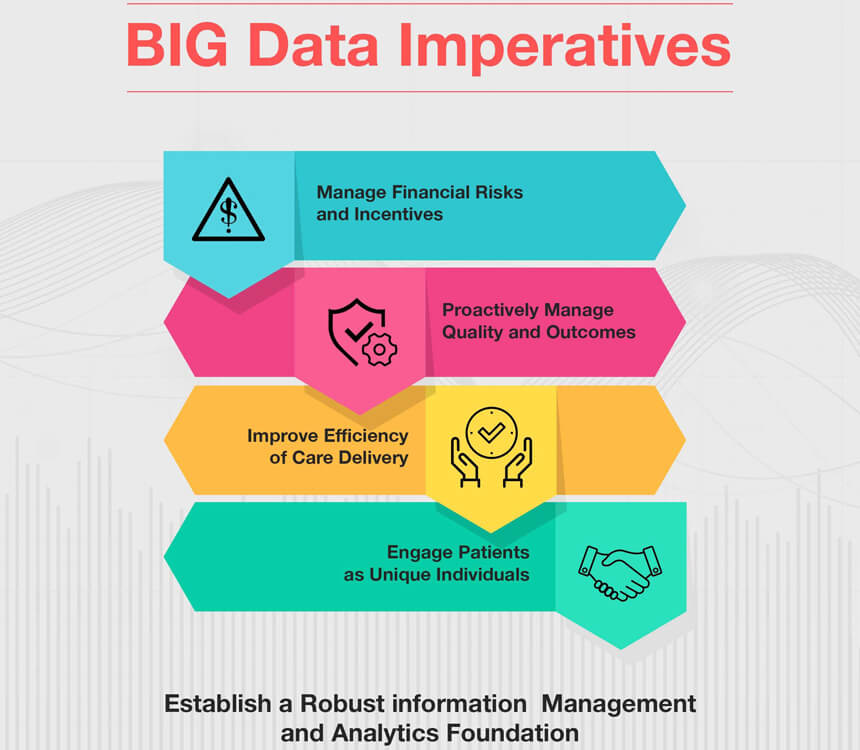Businesses use big data to streamline their business processes and better serve their customers. Today, we’re seeing an unprecedented amount of data being shared, so eCommerce data management has become a growing concern. There is too much data for obsolete systems to manage.
The problem is that failing to manage data properly causes a lot of issues as a business moves forward. Data continues to pile up and extends the problem even further, putting even more pressure on employees and decision-makers. The consequences can become quite severe.
Introducing a data management system can help relieve this stress, so now it becomes a question of where to start. One of the best starting points is to slowly move data away from older systems and into a newer, more advanced database.
That way, everyone has easy access to this data without having to search all over the place to find it.

How Data Management can help you to Boost eCommerce Growth?
Data Management Improves Collaboration Within a Business
Ecommerce businesses are built around multiple departments and teams, so all of these elements must be able to come together to focus on a singular goal. This is the only way that a business will run at peak efficiency. One problem that a lot of companies experience is when two departments act independently of each other. Eventually, they will start counteracting each other and impede progress.
Having all data managed in a single location helps prevent this issue because it syncs all of the data. This means that when one team updates a file, it will be seen in real-time by every other team in a company.
Attract New Customers More Efficiently
Customers are the life source of a business, so we’re always looking for ways to bring in new leads. The most efficient way to do this is by widening their net. That’s where data comes into play. Companies can use all the information at their disposal to formulate strategies and push forward new marketing campaigns that can convert more leads into customers.
In short, leaders can make better decisions if they have access to accurate data. They can pinpoint niches before they become widespread. However, if data becomes corrupt or is hard to access, it’s much more challenging to make accurate decisions. Businesses end up targeting the wrong customers or alienating their current leads.

It’s Easier to Retain Leads
There is an old business quote that continues to be true: “Fortune is in the follow-up.”
What this means is that while it’s essential to get new customers, retaining current ones is where businesses make the most money. It costs about 5 times as much money to get a new customer as it does to retain one. Data will ensure that you are reaching out to current customers and keeping them satisfied.
The problem is that data can become corrupted. Customers change emails, or they become unresponsive. Data management systems help ensure that your customer profiles are being kept up-to-date. As a result, you will experience a higher retention rate.
Know the Effectiveness of Your Marketing
Even eCommerce businesses that market on every platform under the sun will still need to make sure that their efforts are not going to waste. Many companies find that they are marketing in too many places. If you are marketing in areas where your customers do not spend a lot of time, then you’re essentially wasting money. That money can be invested elsewhere, where your target market hangs out.
Data shows you how well each of your marketing campaigns is converting. A big problem with a lack of data management is that it’s difficult to gauge your marketing efforts accurately.
Big Data Leads to Better Decisions
eCommerce data management allows businesses to make faster, more accurate decisions as they continue to grow. Retailers have always drawn insight directly from customers, so it still uses that same foundation. But we have access to so much customer information now that without the proper data management plan in place, it will overwhelm your business. In short, this data provides eCommerce businesses with a new set of eyes to spot trends in customer behavior.
Overall, this means that big data helps eCommerce businesses make better decisions as they expand and grow.
Accurately Predict Trends with Big Data
We can see the eCommerce giant Amazon using its vast amounts of data to predict trends accurately. They have reached the point where they can create trends, as seen by their famous Prime Day. All eCommerce businesses can follow this example and use their data to predict trends. The problem comes when a company starts accumulating too much data into obsolete systems. They get confused and see information coming from all directions. This disorganization will cause them to fall behind on trends and react too late.

Create Personalized Offers
Again, we can see Amazon utilizing data for this exact purpose every day. You can replicate this practice, but you will need to build a foundation based on proper data management. Creating personalized marketing strategies for segments of your customers requires you to gather meaningful insights from all the data you’ve been collecting. You can’t do this unless you’re following the proper eCommerce data management plan.
Post on the Right Social Media Platforms
Social media is one of the most valuable marketing tools in the world. However, a lot of businesses are spending too much time on the wrong platforms. Having the proper data management practices in place helps ensure that you are investing time on social media platforms where your customers are spending the most time.
Conclusion
Small businesses gather all the correct data, but they have it stored in such a disorganized way that it loses much of its value. It is hence a good idea to hire a professional data management company to help you employ effective data management strategies to boost your business.


0 Comments